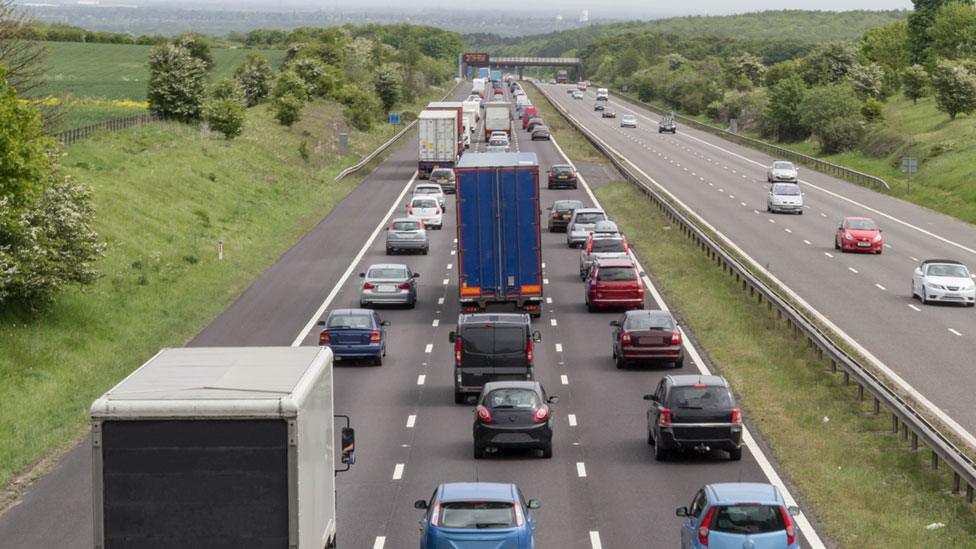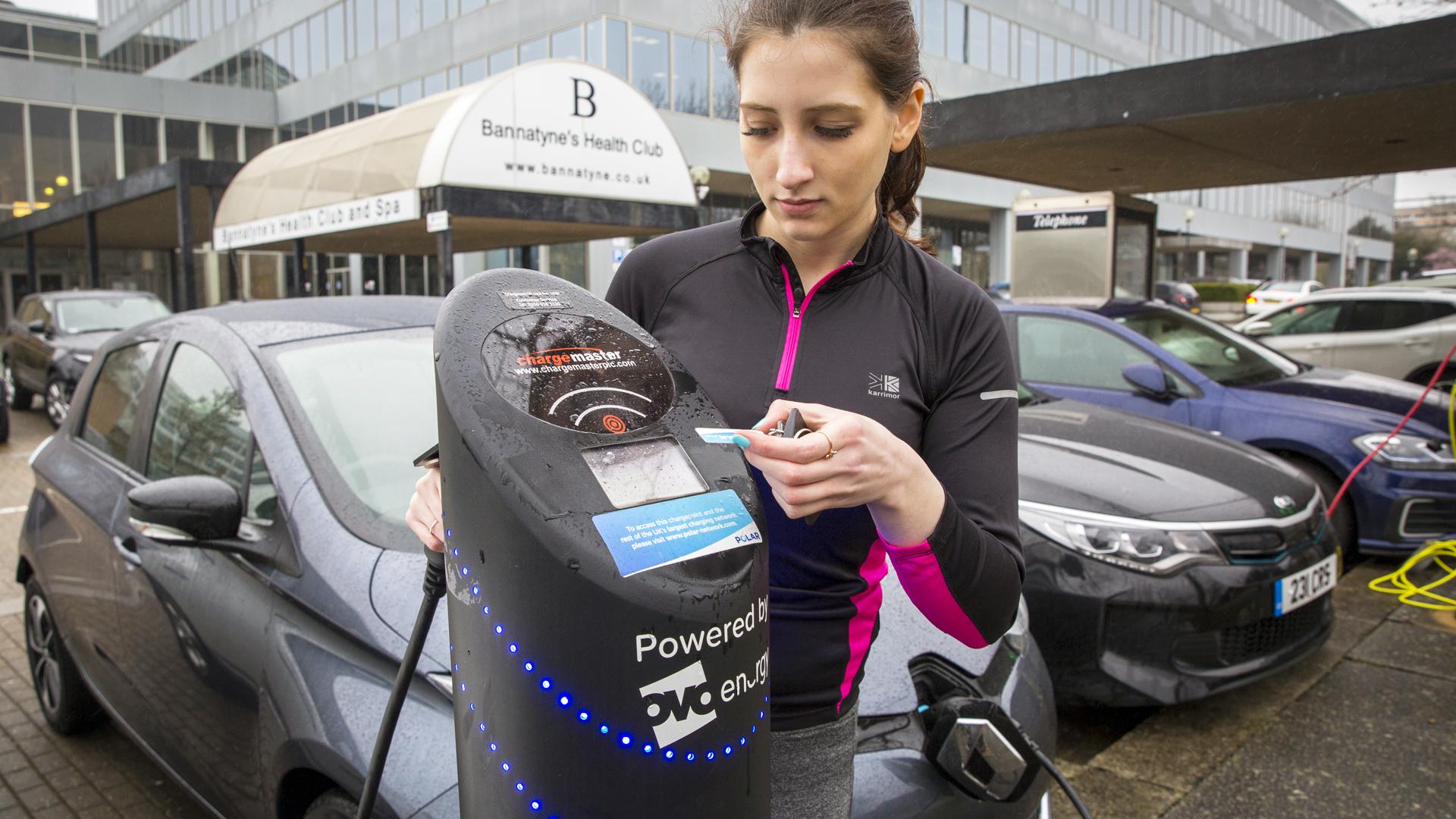Road use charges should be tailored to drivers, says report
- Published
- comments

Motorists should be charged for using the UK's road network based on personal circumstances, a new report says.
Drivers currently pay fuel and vehicle taxes, but road pricing is limited to certain toll roads and schemes such as London's congestion charge.
However, a group of infrastructure engineers has said that approach is "failing", because revenue from those existing taxes is "drying up".
The government said it was investing £15bn in the road network.
The Association for Consultancy and Engineering (ACE), which represents companies involved in designing the UK's infrastructure, admitted some people were suspicious of road pricing.
However, in its report "Funding Roads for the Future", external it said charges for road usage should be introduced which took into account:
whether a driver's journey was on motorways or country lanes
the time of day
how much congestion was on the network
drivers' financial circumstances - for example, whether they were students, pensioners or unemployed
ACE said relying on money raised through fuel duty, Vehicle Excise Duty and the HGV levy was outdated.
"The growing uptake of zero-emission vehicles means revenue from Vehicle Excise Duty and Fuel Duty will continue to decline as a percentage of the UK's GDP in the future," it said.
Changing social trends, including ride sharing and increased urbanisation, meant there was less need for personal transport, it added.
As a result car ownership was falling and that was putting pressure on revenues, creating "problems for the funding of roads".
'Under-investment'
However, a Treasury spokesperson said: "We are committed to ensuring that our roads are fit for purpose, and that's why we are investing £15bn in our Road Investment Strategy.
"We are also supporting hardworking people across the country by freezing fuel duty for the eighth year in a row, saving drivers £160 a year on average."
ACE said there had been four decades of underinvestment in roads.
"Our report argues that in the years ahead only a reformed funding regime based on dynamic road user pricing will manage traffic flows and deliver the significant investment needed to keep the country moving," said the association's chief executive, Nelson Ogunshakin.
He said it was "vital" that the government starts these conversations now, as there are fears "people will be priced off the road".
"This doesn't have to be the case and there is a great opportunity to develop a fairer-for-all road funding system which delivers the first-class road network that this country needs long into the future," said Mr Ogunshakin.
- Published19 November 2017

- Published13 July 2017

- Published4 February 2020

- Published13 March 2017
